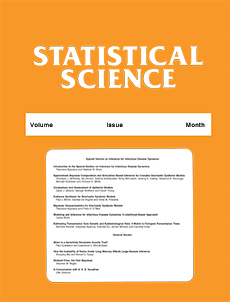Abstract
In a randomized experiment, the investigator creates a clear and relatively unambiguous comparison of treatment groups by exerting tight control over the assignment of treatments to experimental subjects, ensuring that comparable subjects receive alternative treatments. In an observational study, the investigator lacks control of treatment assignments and must seek a clear comparison in other ways. Care in the choice of circumstances in which the study is conducted can greatly influence the quality of the evidence about treatment effects. This is illustrated in detail using three observational studies that use choice effectively, one each from economics, clinical psychology and epidemiology. Other studies are discussed more briefly to illustrate specific points. The design choices include (i) the choice of research hypothesis, (ii) the choice of treated and control groups, (iii) the explicit use of competing theories, rather than merely null and alternative hypotheses, (iv) the use of internal replication in the form of multiple manipulations of a single dose of treatment, (v) the use of undelivered doses in control groups, (vi) design choices to minimize the need for stability analyses, (vii) the duration of treatment and (viii) the use of natural blocks.
Citation
Paul R. Rosenbaum. "Choice as an Alternative to Control in Observational Studies." Statist. Sci. 14 (3) 259 - 304, August 1999. https://doi.org/10.1214/ss/1009212410
Information





